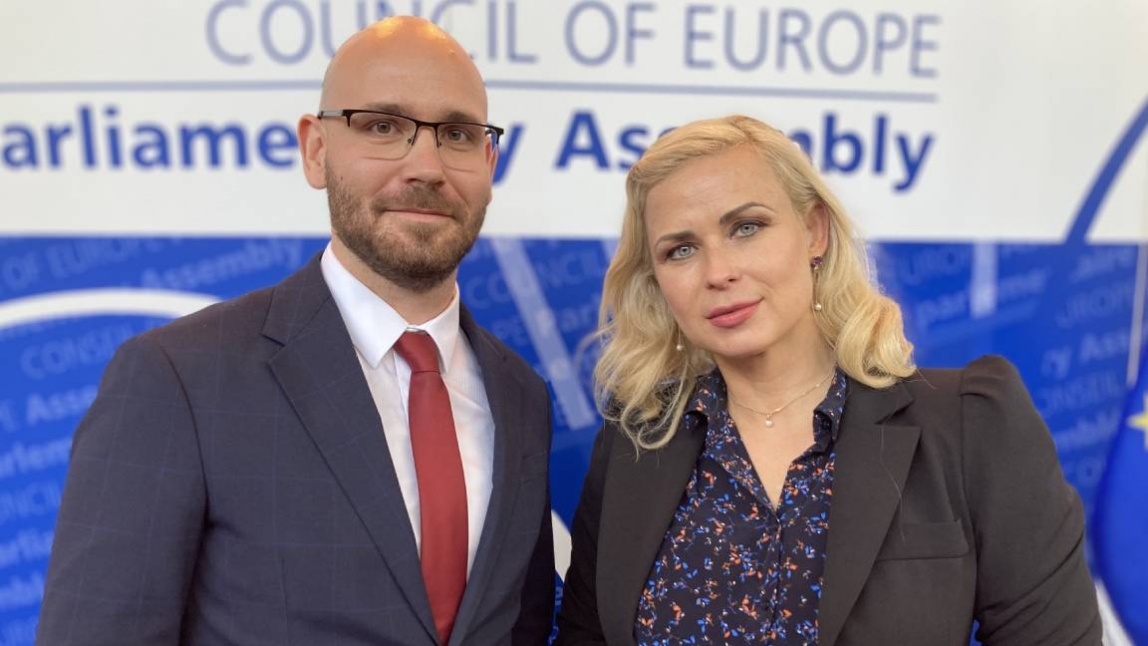Hungary currently holds the Presidency of the Committee of Ministers of the Council of Europe. The Presidency has made environmental protection one of its top priorities, and the Climate Policy Institute is actively involved in the climate and environmental policy work of the Hungarian Presidency of the Council of Europe. Last week, the issue of the generalization of the fundamental right to a healthy environment was on the agenda, which is both a forward-looking and a risky undertaking.
A new favorite: the right to a healthy environment
The right to a healthy environment is a so-called third generation human right. A fundamental human right is defined as a right to which all human beings are equally entitled from birth. First-generation human rights have a long tradition stretching back many centuries, such as the right to life, freedom of expression and equality before the law, while second-generation rights, collectively known as 'social rights', emerged in the first third of the twentieth century. Examples include the right to work, the right to earn a living and the right to housing.
Third generation rights were largely created in the second half of the twentieth century. What they have in common is that they seek to respond to global problems. These include the right to peace, the right to development and the right to a clean environment.
Enshrined in the Fundamental Law of Hungary
Hungary's Fundamental Law includes in several places the right of the Hungarian people to a healthy environment and the responsibility of the state to ensure a clean environment. The National Avowal states that
"We commit ourselves to promoting and safeguarding our heritage, our unique language, Hungarian culture and the languages and cultures of national minorities living in Hungary, along with all man-made and natural assets of the Carpathian Basin. We bear responsibility for our descendants and therefore we shall protect the living conditions of future generations by making prudent use of our material, intellectual and natural resources.”
Article XX in Freedom and Responsibility (on constitutional fundamental rights) also refers to this:
(1) Everyone shall have the right to physical and mental health.
(2) Hungary shall promote the effective application of the right referred to in paragraph (1) through agriculture free of genetically modified organisms, by ensuring access to healthy food and drinking water, by organizing safety at work and healthcare provision and by supporting sports and regular physical exercise as well as by ensuring the protection of the environment.”
And Article XXI in Freedom and Responsibility makes it even clearer than before that
"(1) Hungary shall recognize and endorse the right of everyone to a healthy environment.
(2) Anyone who causes damage to the environment shall be obliged to restore it or to bear the costs of restoration, as provided for by an Act.
(3) The transport of pollutant waste into the territory of Hungary for the purpose of disposal shall be prohibited."
It is clear, therefore, that the Hungarian Government has enshrined the right to a healthy environment at the highest level of legislation. However, the State does not act in this direction for its own sake, but to protect the health of the people living in the present and to preserve natural resources for future generations.
Opportunity or constraint?
Why does the Council of Europe want to address this issue separately? It is because, in contrast to our country, not all countries enshrine and enforce the right to a clean environment. The proponents of the European initiative argue that it would be inefficient to force each country individually to establish this right through national legislation. Some form of common European directive is therefore needed.
However, the Climate Policy Institute believes that, in the present circumstances, a declaration of this right at European level can only be acceptable if it also respects the principle of subsidiarity. This can only be done if the wording of the European legislation is general enough to give each country the leeway to implement it in the most appropriate way within its own legal system. Since climate protection and the protection of the natural environment are highly dependent on the social, economic and political structures of countries, these issues cannot and should not be dealt with at supranational level beyond the definition of a pan-European objective.
The risk of political blackmail
Respect for the principle of subsidiarity would ensure that the European bureaucracy cannot use the enforcement of this human right as a political weapon against Member States. This is a legitimate fear for the decision makers in the Member States. In various submissions, reports and analyses, we have already seen many times how Brussels has used policy issues as a tool for political blackmail. Unfortunately, we are seeing a similar pattern unfolding in relation to the issue of climate change.
This is evidenced by the fact that the language of the reports that formed the basis of last week's climate debate in the European Council lacked scientific rigor and instead it used highly ideologized terms such as climate emergency, climate crisis or even “sick earth”. There is also a suspicion of political ulterior motives in the choice of topics in the reports, which ties climate change to the issues of the rule of law, the quality of democracy or social justice and discusses them together. The proposals, which are mainly tabled by Socialist and Green Party MEPs, also include the need to create the possibility for green NGOs to take legal action against Member States if these NGOs consider that they are not guaranteeing the right to a healthy environment.
Fundamental rights can take a number
Decision-makers in Member States opposed to mass illegal migration are surprised to read in the discussion papers that the proposals would require Member States to recognize the right to a healthy and safe environment not only for European citizens, but for all people in the world. This would, in turn, open a kind of 'migration loophole', as it could be used by the European bureaucracy to force Member States to admit migrants who plan to enter the EU on environmental grounds in order to enforce the human right to a healthy environment.
Recognition of the right to a healthy environment at supranational level may also raise concerns that in some cases a third generation right will conflict with second generation social rights. For example, the right to a healthy environment could be invoked by European decision-makers to make decisions that adversely affect the economies (and therefore the populations) of individual Member States. For example, too rapid dismantling of existing 'dirty industry' could infringe on citizens' right to work, hasty energy transition could jeopardize energy security and an ill-considered climate tax system could threaten their right to a livelihood through a drastic increase in the burden on households.
How is it possible that a common law designed to achieve a fundamentally good objective can carry so risky?
All the concerns are rooted in the mistrust between Member States and Brussels. This is primarily because the political elite in Brussels often sees national governments not as allies but as adversaries, and strong Member States not as pillars of a strong Europe but as obstacles to be overcome. As long as the federalist spirit pervades European politics, Member States that retain their sovereignty will not give a trump card to the Brussels leadership that wants to penalize them.
The right of European citizens to a healthy environment is in our common interest. Recognizing this right at European level would be a great step forward. So it is time for Strasbourg and Brussels to decide whether it is more important to increase political power or to protect the environment, so often heard in political discourse.
Originally published on Mandiner.hu (04.10.2021)



